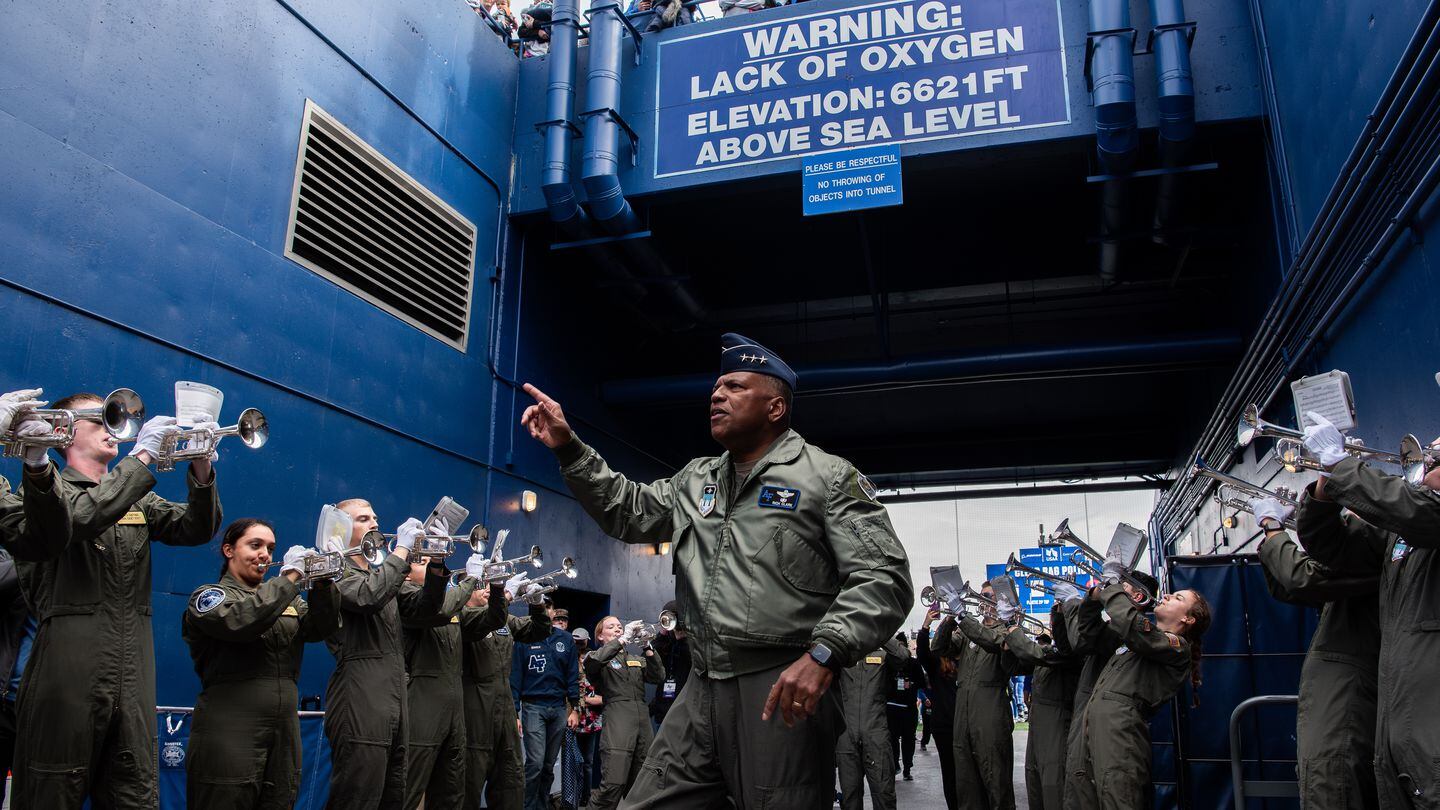U.S. Air Force Academy Superintendent Lt. Gen. Richard Clark will join the College Football Playoff as executive director following his retirement from military service in 2024, the organization said in a recent release.
The announcement signals the impending departure of the senior official at one of America’s five military academies as the Pentagon works to train the next generation of officers for a new era of war.
It’s unclear when Clark plans to depart the school or who President Joe Biden may nominate as his successor. The three-star did not respond to a request for comment.
In a Nov. 10 statement, Clark said he’s honored to lead the annual invitational postseason tournament as it expands from four to 12 teams.
“College football is an American tradition unlike any other,” he said. “This is an exciting time for fans and everyone involved in this great game. I’m excited to be a part of it.”
Each year, a 13-member selection committee ranks the best teams in NCAA Division I football and matches them in a rotating cast of semifinal games — the Cotton Bowl, Fiesta Bowl, Peach Bowl, Orange Bowl, Sugar Bowl and Rose Bowl — before crowning a winner at the national championship.
“The No. 1 thing that I heard from the (search) committee was that they needed leadership,” Clark said Monday, according to the Associated Press. “They want me to not just be a leader in the day-to-day operations, but a strategic leader that not only helps develop the vision and where college football can go, but to help execute that vision once we have it.”
The college gridiron is familiar territory for Clark, a 1986 Air Force Academy graduate and Falcons football alum. The airman also coached its junior varsity squad before returning to campus as its commandant of cadets and, later, superintendent.
Now, Clark oversees around 4,000 cadets pursuing degrees and military careers at the Colorado Springs, Colorado, campus each year. The school is one of three sources of new officers for the Air Force and Space Force, and also educates international students and cadets bound for other branches of the U.S. military.
In September 2020, Clark became the first Black airman to lead the academy in the school’s nearly seven-decade history.
He was at the helm as students returned to campus for their first full semester since the coronavirus pandemic began earlier that year, and as the school cracked down on more than 200 cadets who used the plunge into distance learning as an opportunity to cheat on coursework.
Clark has also served as the college’s top officer on challenges ranging from an enduring effort to curb sexual harassment and assault at military academies, to its push to incorporate aspiring Space Force guardians and prepare students for the future of war.
Before returning to the academy, Clark was a decorated bomber pilot who amassed more than 4,200 hours in the cockpit — including over 400 in combat. He later rose through a series of command and policymaking jobs, largely inside the Air Force’s nuclear enterprise.
“He piloted the B-1 bomber. … Given some of the issues in college football, you may never know when that might come in handy,” quipped Mississippi State President Mark Keenum, who chairs the playoff’s Board of Managers.
Rachel Cohen is the editor of Air Force Times. She joined the publication as its senior reporter in March 2021. Her work has appeared in the Washington Post, the Frederick News-Post (Md.), Air and Space Forces Magazine, Inside Defense, Inside Health Policy and elsewhere.
